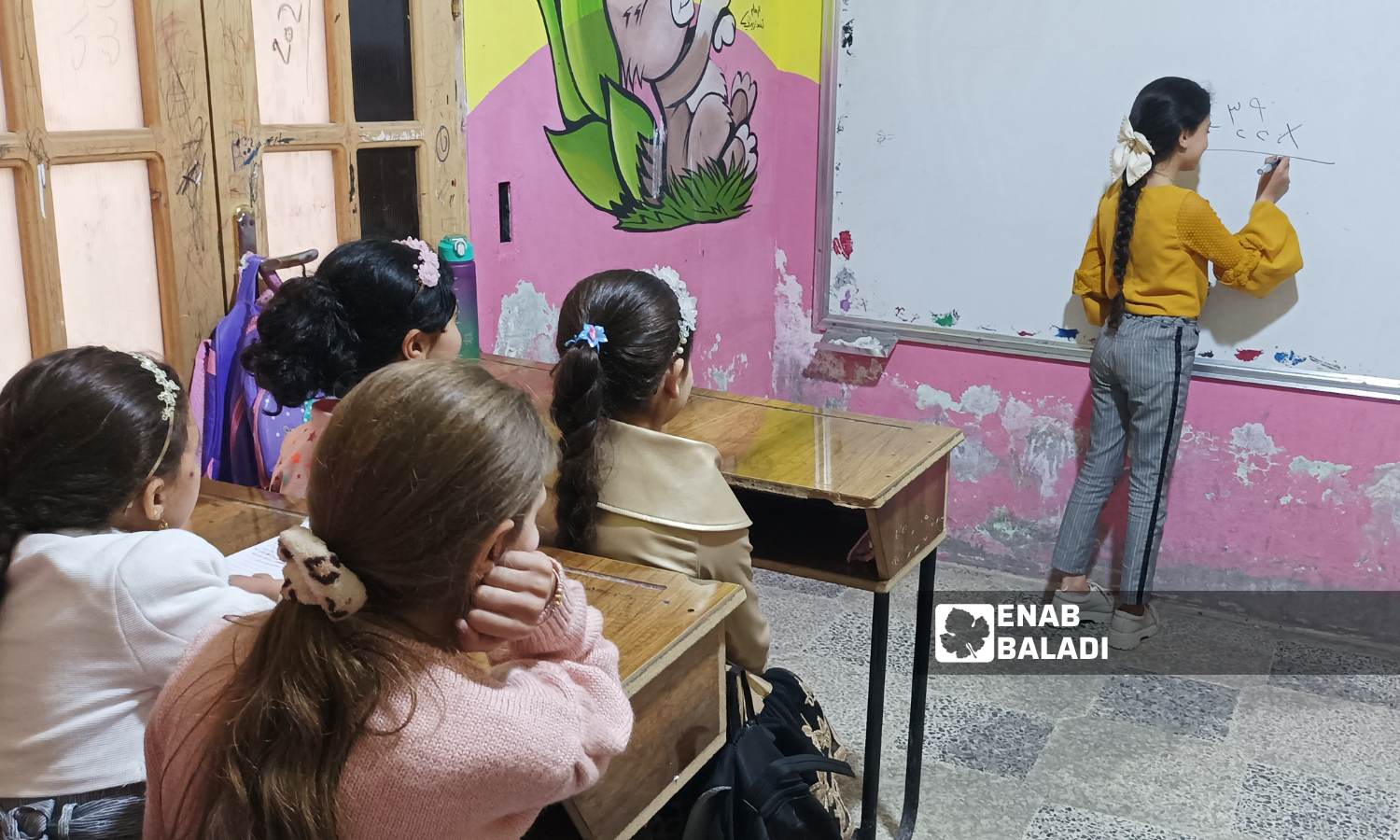
In the conflict-affected region of Idlib, northwest Syria, teachers are increasingly concerned about the deteriorating quality of student writing, particularly in Arabic language classes. Rahaf, a seventh-grade Arabic language teacher in the area, recently shared her dissatisfaction upon evaluating her students’ expression assignments. She observed a noticeable decline in their ability to convey ideas coherently and structure their thoughts effectively.
“It’s not just about spelling mistakes or grammar—it’s the whole thought process that seems fragmented,” Rahaf noted, emphasizing the broader implications for students’ cognitive and communication skills.
This concern is echoed by other educators in the region, who attribute the problem to several key factors. Among them is the modification of the curriculum, reportedly altered by local educational authorities to meet the capacities and conditions of schools under opposition control. Due to the ongoing conflict and limited access to official resources, these adaptations often result in a diluted or inconsistently applied syllabus.
Additionally, the region suffers from a shortage of trained teachers and an absence of standardized teaching materials. Many teachers work under difficult circumstances, often without regular pay or professional development opportunities. Schools, particularly in rural areas, operate with minimal facilities and large class sizes, further hurting the quality of education.
The combination of these factors creates a challenging educational environment for both teachers and students. With students lacking a solid foundation in language skills, their ability to progress in other subjects is also compromised. Language proficiency is not only essential for academic achievement but also for fostering critical thinking and self-expression, both crucial for rebuilding a society torn by more than a decade of war.
Educational NGOs and civil society organizations operating in Idlib have attempted to fill the gaps, offering teacher training workshops and distributing supplemental teaching materials. However, their reach remains limited in scope, often constrained by funding shortages and security risks.
Teachers like Rahaf continue to advocate for comprehensive educational reforms, calling for more structured support, an updated and unified curriculum, and targeted interventions to improve literacy and writing among students. Such measures, educators argue, are a vital investment in the region’s future—ensuring that young Syrians are equipped with the skills needed to participate in the rebuilding of their communities.
As the educational sector in northwestern Syria grapples with these challenges, the voices of frontline educators underscore the need for sustained international attention and support to safeguard the right to quality education for all children in conflict-affected areas.
Source: https:// – Courtesy of the original publisher.








